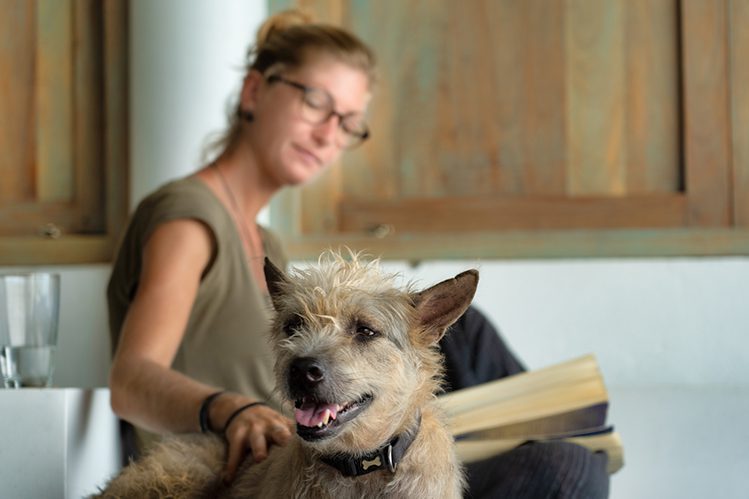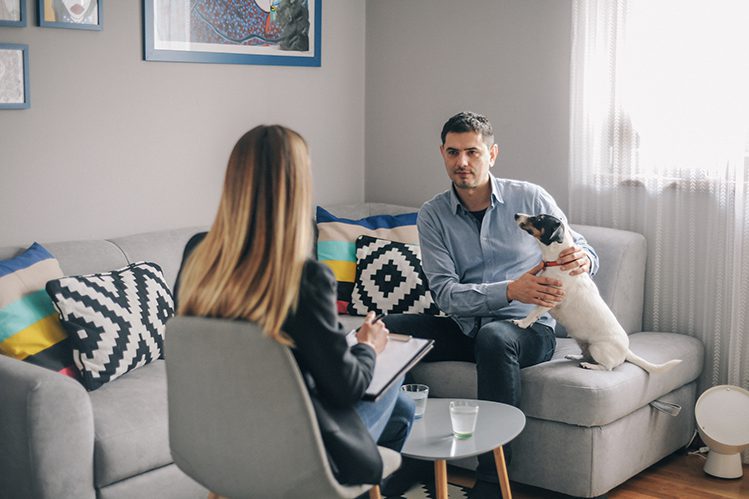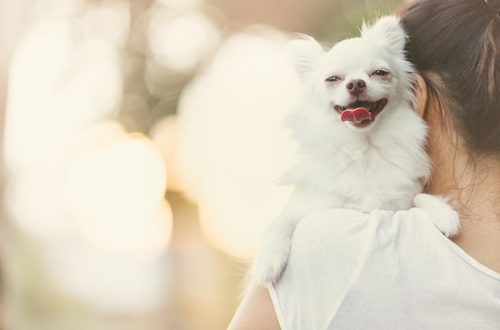
Zoopsychologist: who is he, why is he needed and how to choose the right one?
The profession of a zoopsychologist is one of the young, but gaining popularity every year. It is not surprising that many people do not even know that such a specialist exists. But you can contact him for any questions related to the behavior of the pet.
Zoopsychology is a science that studies the mental activity of animals and its manifestations. It explains how pets and wild animals perceive the world, how they relate to it, and how it manifests itself in the behavior that we observe. Therefore, if you need to find out the reasons for the behavior of a four-legged family member, a zoopsychologist will help you with this.
Contents
Zoopsychologist: what does he do and in what situations should he be contacted?
Not only people are subject to psychological trauma, stress and mental problems. Pets are also afraid of something, worry and suffer. However, if a person can tell himself what worries him, then our smaller brothers are not capable of this. Therefore, the zoopsychologist himself determines the causes of the destructive behavior of the pet and, together with the owner, corrects this.
What does a zoopsychologist do?
Builds a bond between a person and their pet
Explains to the owner the true motives of the pet’s behavior
Corrects behavior
Helps with social adaptation
Educates
Gives recommendations to the owners on the care, maintenance and communication with the pet.

You need to contact a zoopsychologist if you are concerned about the behavior of a dog or cat. Of course, an experienced owner can find common ground himself and competently correct the behavior of the four-legged. However, in most cases, a specialist is indispensable. Usually people humanize their wet-nosed and mustachioed, attribute to them traits of character and motivation of a person, and this can lead to an incorrect interpretation of behavior and, accordingly, incorrect education. A zoopsychologist will tell you exactly what signals in your friend’s behavior you should pay attention to.
Do not expect your tail to stop throwing itself at other pets and people, be afraid of noise and go to the toilet in the wrong places. In some cases, going to a zoopsychologist can be the only salvation.
Most often, they are looking for a zoopsychologist for dogs, because in most cases it is they who exhibit undesirable behavior and can cause more harm than cats. But for cats, zoopsychologists can be useful. With exotic animals it is more difficult – most of the owners cannot interpret their behavior even approximately, therefore a zoopsychologist is indispensable here.
You can contact a zoopsychologist even when you do not have a pet yet. If, for example, you dream of getting a dog, a specialist will help you choose a breed that suits your temperament and character.

How is a zoopsychologist different from a veterinarian and a cynologist?
It may seem that there are no differences between these professions, but the difference is significant. Firstly, the zoopsychologist does not “train” on commands, does not teach to lie down and sit. Secondly, the work of a zoopsychologist is aimed at the behavior and psyche of a pet, its reaction to humans and relatives. Thirdly, the zoopsychologist is in contact with both pets and their owners. And in most cases, it is the conversation with the owner that makes up most of the work of a specialist.
Animal psychologists are also used in the treatment of diseases. But if a veterinarian treats a disease of the body, then a zoopsychologist works with psychological problems. Yes, yes, the phrase “all diseases are from nerves” applies not only to people.
How to choose a zoopsychologist?
Animal psychology for many people is a very vague concept. Fraudsters often take advantage of this and pretend to be professionals. We will show you how to distinguish a professional zoopsychologist from a person who decided to cash in on you and your pet.
What you need to pay attention to:
Education. In some universities, you can get the specialty of a zoopsychologist, but most often a person has a related profession (cynologist, biologist, veterinarian, etc.). They further study the psychology of pets in additional courses. There are also “bright minds” who are engaged exclusively in self-education and quite well apply knowledge in practice, but there are only a few of them.
Work experience. It’s great if the zoopsychologist has rich experience and impressive practice. It is desirable that the specialist work only with cats, or only with dogs, or with exotic pets, because. the principles of behavior of these animals differ radically.
Education. Any conscientious specialist will learn new things throughout his life and improve his skills, and a zoopsychologist is no exception. In the office of such a person, you will find many certificates of completion of courses, seminars and participation in events.
Knowledge. A true specialist studies a huge amount of literature in his field, he is aware of the latest discoveries and news from the field of zoopsychology. Therefore, he will be able to answer any of your questions in detail.
Pet attitude. This is the last item on the list, but not the least. Pay attention to how the zoopsychologist contacts your pet, how he talks to him, what emotions he demonstrates. From a person who works with our smaller brothers, confidence, warmth and affection should come.
We have decided on the characteristics of a zoopsychologist. Now let’s see where it can be found.

Where to look for a zoopsychologist?
Animal psychologists typically work in the following organizations:
Research Institute
Veterinary clinics
Animal protection organizations
Shelters
Agricultural enterprises.
Animal psychologists also run private practices and post offers of their services on the Internet. Many of them give virtual consultations. This, of course, cannot be compared with a personal meeting, but at least you will know in which direction to move and what should be changed in your relationship with your four-legged friend.
If a pet makes your life unbearable and brings you more problems than joy, do not throw it out on the street, do not take it to a shelter, and even more so do not euthanize it! Zoopsychologist is a progressive and indispensable profession in our time. Be sure that a conscientious zoopsychologist will certainly help you correct the behavior of a dog or cat. The main thing is that you yourself sincerely want to help your pet!





